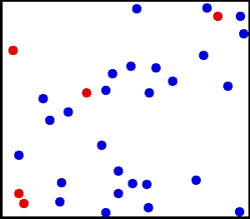
Absolutely EVERYTHING you need to know about energy and much much more!
Hannah's Energetics Emporium



Entropy? Enthalpy? more like gibberish!?!! Don't worry you have come to the right place!
Entropy Examples
1) Which reaction has the GREATEST INCREASE in entropy?
A. SO2 (g) + H2S(g) ----> 2H20 (l) + 3S(s)
B. CaO (s) + CO2(g) ----> CaO3(s)
C. CaC2(s) + 2H20(l) ----> Ca(OH)2(s) + C2H2(g)
D. N2(g) + O2 (g) ----> 2NO (g)
C. CaC2(s) + 2H20(l) ----> Ca(OH)2(s) + C2H2(g)
2) Which change will NOT increase the entropy of a system?
A. Increasing the temperature
B. Changing the state from liquid to gas
C Mixing different types of particles
D. A reaction where four moles of gaseous reactants changes to two moles of gaseous products.
D. A reaction where four moles of gaseous reactants changes to two moles of gaseous products.
The entropy will NOT change because the state stays the same
therefore disorder will stay the same.
3) Propene can be hydrogenated in the presence of a nickel catalyst to form propane. Use data below to answer the Entropy question
Calculate the standard entropy change for the hydronegation of propene
= +270 - (131 + 267) = -128 J K -1
The state change from solid and liquid to solid and gas has a higher entropy. Gas has the highest disorder/ entropy out of the three states; particles are more widely spaced than solids and liquids.

